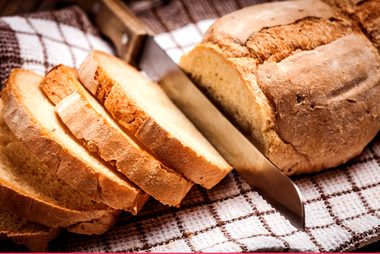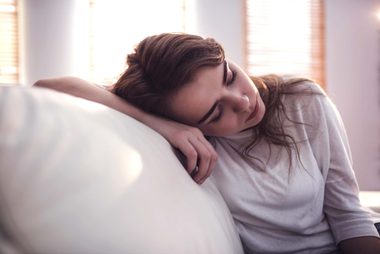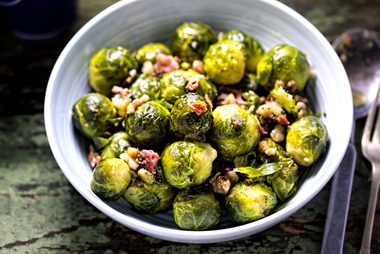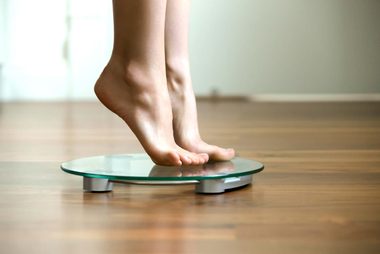
Deciding to go carb-free
After an indulgent holiday season and a ton of international traveling, I knew it was time to detox my overfed body. In order to erase some damage caused by hearty comfort food and daily charcuterie boards, I decided to live entirely without refined carbs—that is, all sugars and starches that don’t exist on their own in nature. So all forms of breads, pastas, chips, fries, etc., were completely off limits, but natural carbs like those found in fruits and lima beans were OK. Cutting these refined carbohydrates not only helped reset my digestion, but also fulfilled my lifelong dream of being able to say “Sorry, I don’t do carbs.” I can proudly announce that I have nearly reached one month sans carbohydrates, but the effects haven’t been entirely rosy (in fact, they’ve been far from it). Here are the good and bad side effects I’ve experienced since starting this strict diet. Follow these nine steps to a low-carb diet.

Constant headaches
After just one day without carbs, I began to develop a relentless, pounding headache. The pain was not simply irritating—it was practically crippling. While I was extremely surprised by this sudden onset of headaches (as I said, it had only been one day!), it turns out that this dietary side effect is completely normal. Carbohydrates can be so addicting that restricting them cold-turkey (as I did) causes withdrawal symptoms similar to those experienced when cutting off booze, caffeine, or drugs. Carbs had become my vice and addiction, and I was beginning to feel the consequences of getting so seriously dependent on them. Got a headache? Try these natural remedies.

Extreme moodiness
I feel so badly for anyone that interacted with me on my first week without carbs! I was unnecessarily irritable and took “hangry” to never-before-seen levels. However, these mood swings aren’t uncommon when cutting carbs. According to Judith Wurtman, director of the Women’s Health Program at the Massachusetts Institute of Technology, studies show “a connection between a diet low in carbohydrates and low levels of serotonin—a neurotransmitter that promotes feelings of happiness and satisfaction.” Wurtman’s research demonstrates that a no-carb diet “leads to pronounced feelings of depression and sadness, even rage.” I can attest I felt all of these draining emotions quite acutely.

Fatigue
During my first two weeks on the no-carb diet, I felt so incredibly exhausted that I felt ready to collapse into a nap at any given second. I struggled to wake up after a full night’s rest and wanted to get to bed very early in the evening. This fatigue was caused by a lack of glucose, i.e. the most important carbohydrate fuel in human cells. When your diet is carb rich (as mine most definitely was), your body becomes used to having glucose as its go-to source of energy. Without it in your diet, your body suffers extreme lack of energy and you’re left feeling exhausted and dizzy. Find out the veggies that are lowest in carbs.

Lack of focus
Before cutting all carbs, I never would have imagined that this lifestyle change would so drastically hurt my work life and productivity. I went from being motivated and on the ball to completely zoned out and unable to properly focus (a sensation known as the ‘induction flu‘). This is because your brain (along with the rest of your body) needs energy to focus, and typically relies on a steady intake of carbs to stay alert. One 2009 study even found that “low-carb dieters did worse on memory tests than dieters following an American Dietetic Association diet, which recommends a balance of carbs, protein, and fat.” Ah, so that explains why I’d stare at my screen for hours, unable to keep track of what I wanted to do.

Less bloating
One positive aspect of cutting carbs was the sudden end to all bloating. I felt full but not pregnant-looking after eating, and absolutely noticed a difference in terms of how lean I looked first thing in the morning. Decreasing your carbohydrate consumption can have a diuretic effect, meaning you’ll shed the extra water retained by your body, and look far less naturally bloated. But be careful—losing too much water retention can also leave you very dehydrated.

Stomach aches during sleep
On top of being deeply melancholy during the day, my carb-free lifestyle continued to hurt me at night. During my sleep, I’d often wake from hunger pangs and churning stomach aches. My stomach was constantly rumbling at night, begging for dessert, a snack, or larger portions of dinner. The sad truth is, my body was being brutally starved (of its favorite food group), and it painfully caught up to me at the end of each day. Fortunately, I had fitness blogger Katie Dunlop’s inspiring journey keeping me motivated throughout the physical discomfort.

Change in cravings
Believe it or not, on my third week without carbs, I all but stopped wanting my beloved pastas, pizza slices, and baguettes, and instead experienced much healthier cravings. I felt as if my taste buds were being re-programmed, and I was glad to finally crave a sweet apple instead of candy, avocado in place of bread, and veggies in lieu of pizza. Don’t get me wrong, throughout the first two weeks I was in utter agony missing all carb-filled goodness. But before long, it wasn’t that hard to say goodbye to sweets.

Weight loss
Finally, the side effect you’ve been waiting for: yes, I did lose a substantial amount of weight by cutting carbs (about 5.5 pounds in total). Without a ready supply of glucose to convert to energy, my body has turned to ketosis, the metabolic process of breaking down fat molecules for energy, and ultimately, this makes the whole struggle worth it. While I may still be a bit moody, tired, and unfocused, I’m going to stick with this carbohydrate free diet for the coming weeks. Wish me luck and check out these other incredible weight loss journeys.